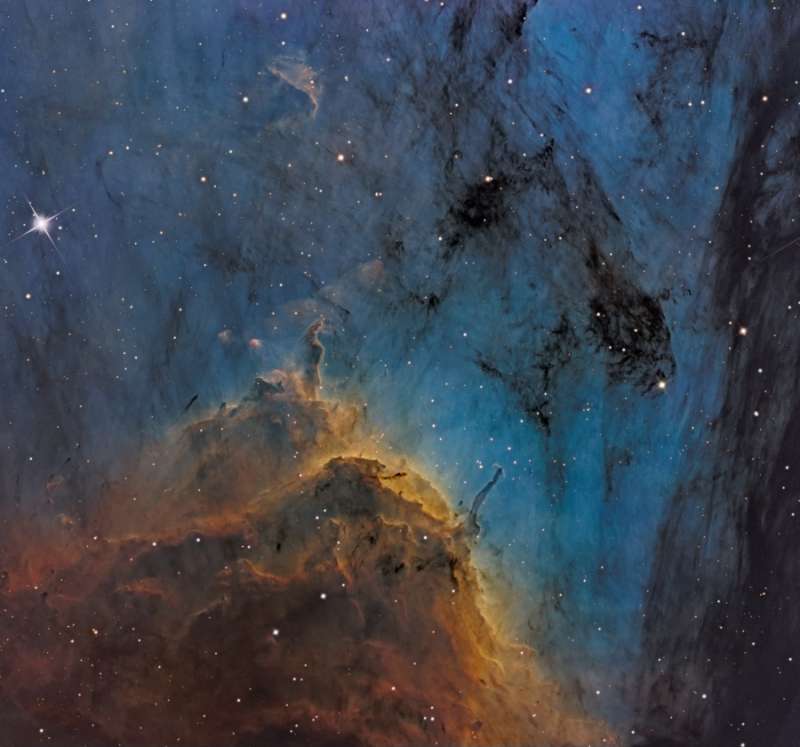Credit & Copyright: Martin Pugh
Explanation:
The prominent ridge of emission featured in
this vivid skyscape
is designated IC 5067.
Part of a larger
emission
nebula with a distinctive shape, popularly called
The Pelican Nebula, the ridge spans about
10 light-years and follows the
curve of the cosmic pelican's head and neck.
The Pelican Nebula close-up was constructed from narrowband data
mapping emission
from sulfur, hydrogen, and oxygen atoms to
red, green, and blue colors.
Fantastic, dark shapes inhabiting the view
are clouds of cool gas and dust
sculpted
by energetic radiation from young, hot, massive stars.
But stars are also forming within the dark shapes.
In fact, twin jets
emerging from the tip of the long,
dark tendril below center are the
telltale signs of
an embedded protostar cataloged as
Herbig-Haro 555.
The Pelican Nebula itself, also known as IC 5070,
is about 2,000 light-years away.
To find it, look northeast of bright
star Deneb in the
high flying constellation Cygnus.
1999 2000 2001 2002 2003 2004 2005 2006 2007 2008 2009 2010 2011 2012 2013 2014 2015 2016 2017 2018 2019 2020 2021 2022 2023 2024 2025 2026 |
Yanvar' Fevral' Mart Aprel' Mai Iyun' Iyul' Avgust Sentyabr' Oktyabr' Noyabr' Dekabr' |
NASA Web Site Statements, Warnings, and Disclaimers
NASA Official: Jay Norris. Specific rights apply.
A service of: LHEA at NASA / GSFC
& Michigan Tech. U.
|
Publikacii s klyuchevymi slovami:
Tumannost' Pelikan - Pelican Nebula - IC 5070
Publikacii so slovami: Tumannost' Pelikan - Pelican Nebula - IC 5070 | |
Sm. takzhe:
Vse publikacii na tu zhe temu >> | |
